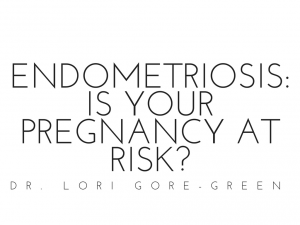Endometriosis affects an estimated 1 in 10 women of reproductive age, yet it often goes undiagnosed for years. It’s a chronic condition that not only causes physical pain but also impacts fertility, mental health, and quality of life.
What Is Endometriosis?
Endometriosis occurs when tissue similar to the lining of the uterus (endometrium) grows outside of the uterus—on the ovaries, fallopian tubes, bowel, or other pelvic organs. Unlike the normal uterine lining, this misplaced tissue has no way to exit the body, causing inflammation, scarring, and severe pain over time.
Recognizing the Symptoms
The symptoms of endometriosis can be subtle or mistaken for other conditions like irritable bowel syndrome (IBS) or painful periods. Common signs include:
-
Severe menstrual cramps that worsen over time
-
Pain during or after sex
-
Chronic pelvic pain
-
Fatigue
-
Painful bowel movements or urination, especially during menstruation
-
Difficulty getting pregnant
Many women are told that pain is “normal,” leading them to suffer in silence for years before receiving a proper diagnosis.
The Diagnostic Challenge
There’s no simple test for endometriosis. Diagnosis often requires laparoscopic surgery, a minimally invasive procedure that allows doctors to view and remove endometrial lesions. Unfortunately, the average time to diagnosis can be 7–10 years, due to the normalization of symptoms and lack of awareness among both patients and healthcare providers.
Treatment Options
While there’s currently no cure for endometriosis, several treatment options can help manage the symptoms:
-
Hormonal therapies: Birth control pills, IUDs, or GnRH agonists can reduce or stop menstruation, helping to control pain.
-
Pain management: Anti-inflammatory drugs and lifestyle modifications like diet and exercise may offer relief.
-
Surgical intervention: In more severe cases, surgery to remove lesions can significantly reduce symptoms and improve fertility outcomes.
Advocacy and Awareness Matter
Women with endometriosis often feel dismissed or misunderstood, but increased awareness is beginning to change that. Celebrities and public figures sharing their experiences have helped bring this invisible illness into the spotlight.
Early diagnosis and intervention can drastically improve outcomes. If you or someone you know experiences ongoing pelvic pain or painful periods that interfere with daily life, don’t ignore it—speak up, seek support, and advocate for proper care.
Endometriosis is real, and women deserve to be heard, believed, and treated with compassion.
